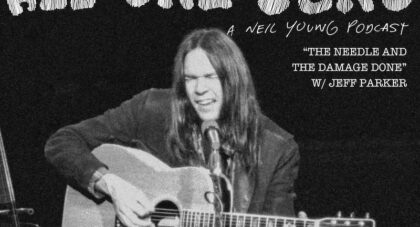Pedrum Siadatian has been on a tear in 2023, creating and releasing two albums that speak to his continued artistic stretching: Zuma 85, which finds Allah-Las, the California rock band he founded with his collaborators in 2008. exploring shambolic and rhythmically dynamic art rock; and Loss For Words, a mostly instrumental jammer by his solo project PAINT. He joins us to discuss kosmische sounds, musical production, and the perils of DIY . . .
Only the good shit. Aquarium Drunkard is powered by its patrons. Keep the servers humming and help us continue doing it by pledging your support.
To continue reading, become a member or log in.


